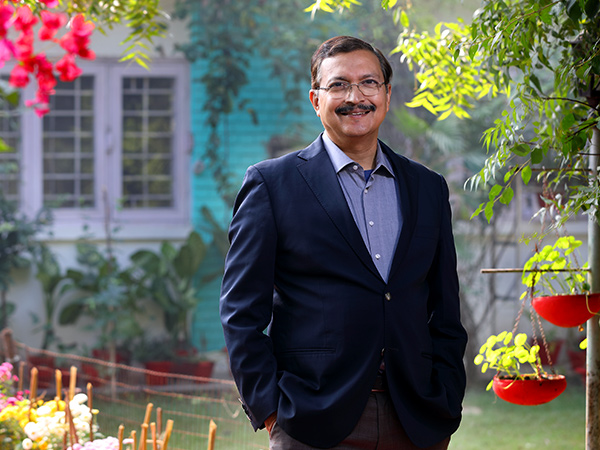The Infosys Prize 2023 in Engineering and Computer Science is awarded to Prof. Sachchida Nand Tripathi for the deployment of large-scale sensor-based air quality network and mobile laboratory for hyper local measurements of pollution, data generation and analysis using AI+ML for effective air quality management and citizen awareness, and for the discovery of new pathways of aerosols formation and growth that provide mechanistic understanding of haze formation.
Infographic:
The air that we breathe
Scope and Impact of Work
Air pollution is one of the high priority problems in India. Mitigating air pollution requires a scientific understanding of the causes of pollution, its origin and sources. Measuring pollution and understanding its source requires networks of inexpensive sensors. Prof. S.N. Tripathi deployed such a sensor network at 1,400 locations, and a mobile laboratory to collect and transmit data automatically for analysis.
Tripathi applied greedy and genetic algorithms to find critical locations for sensors placements while meeting twin requirements of citizens’ satisfaction and resource conservation. He used existing self-supervised Machine Learning (ML) techniques on vast data sets to develop correction factors for collocated and non-collocated sensors. The field data is further corrected by Graph Neural Networks (GNN) to fill missing values. Prof. Tripathi is using a range of techniques such as dynamic time wrapping and hierarchical clustering to figure out airsheds, which are defined as regions with similar air pollution patterns. This may help develop effective air quality management. The vast amount of data allows for in-field fault-detection of sensors, development of air quality forecasting systems, citizen awareness and understanding of disparities between rural and urban air quality.
One of the fundamental findings of Prof. Tripathi is that condensation of vapor drives the formation and growth of nanoparticles which quickly grow into sizes responsible for haze formation in Delhi, and it happens at night without photochemistry. We need such sensor networks and scientific understanding for proper mitigation of air pollution.
Bio
Prof. Sachchida Nand Tripathi was born in Varanasi, Uttar Pradesh. He obtained his B.Tech. from the Indian Institute of Technology, Benares Hindu University (1992), M.Tech. from the National Institute of Technology, Allahabad (1995), and Ph.D. from the University of Reading, UK (2000). After two post-doctoral stints at Bhabha Atomic Research Centre and Oxford University, he joined IIT-Kanpur in 2003, where he is a professor in the Department of Civil Engineering and Department of Sustainable Energy Engineering. The Council for Scientific and Industrial Research of the Government of India awarded him the Shanti Swarup Bhatnagar Award for his outstanding contribution in the field of Earth, Atmosphere, Ocean and Planetary Sciences in 2014. Prof. Tripathi is an elected fellow of major sciences and engineering academies of the country and also holds the J. C. Bose Fellowship of the Department of Science and Technology.
Timeline
Jury Citation
Prof. Sachchida Nand Tripathi has been selected as the winner of the Infosys Prize 2023 in Engineering and Computer Science for his fundamental research in the atmospheric aerosols including the mechanisms of the winter haze formation. He showed that the key differences between Delhi and other places like Beijing are much faster particle growth-rate in Delhi as it happens even at night without photochemistry. This finding is useful for mitigating air pollution.
Prof. Tripathi has also helped deploy large-scale sensor-based air quality network and mobile laboratory for hyper local measurements of pollution needed for effective air quality management and citizens awareness. A pilot scale plant built by Prof. Tripathi is being used by Indian atomic energy agencies for safety evaluation of their nuclear plants. The plant can also be reconfigured to measure aerosol leakage from chemical industries for environmental safety analysis.

Sachchida Nand Tripathi
Congratulations Prof. Sachchida Nand Tripathi for being selected as the winner of the Infosys Prize 2023 in Engineering and Computer Science. Your fundamental research and its deployment in the field has deepened the understanding of the winter haze formation in Delhi by characterizing precisely the atmospheric aerosols using the nanoscale single-particle analyzer. You have shown that carbonaceous aerosol deposition has caused the discoloration of Taj Mahal marble surfaces. We need such scientific understanding to come up with proper mitigations.



